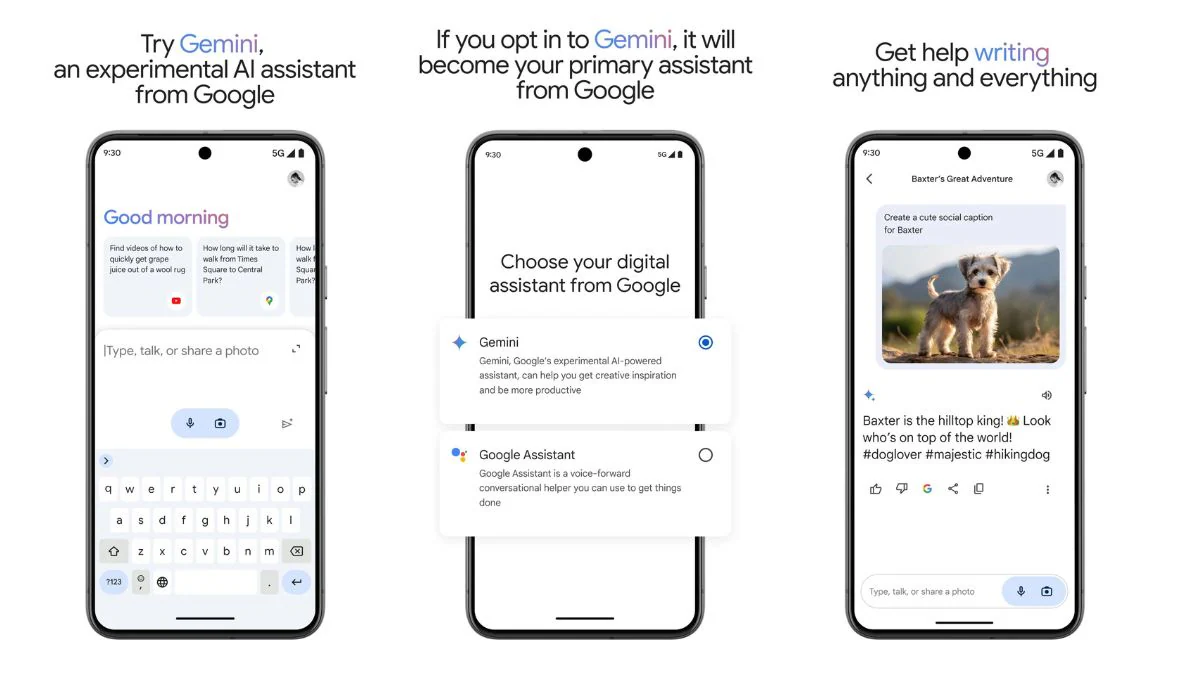Report: Google Working to Integrate Gemini with Google Assistant Headphones

Google’s Gemini Lead, Jack Krawczyk, Confirms App Launch in Asia, North and South America, and Africa This Week.
Google’s Gemini app, the company’s artificial intelligence (AI)-powered assistant, was launched by the company on February 8, but the rollout was limited to the US, and Android smartphones. The tech giant is now expanding support for its latest AI product on two fronts. The app is already confirmed to arrive in other regions such as Asia-Pacific, North America, Latin America, and Africa this week, and a report claims that it might soon be expanded to headphones.
At present, even if a user has set the Gemini app as the default assistant in their phone, activating it via a headset or earphones still triggers the Google Assistant. The issue emerges as devices connected with the smartphone are still not compatible with the AI app. A report by 9to5Google states that the tech giant could soon expand the compatibility with Google Assistant headphones.
The report found a string of code in the latest Google app beta version (15.6) which contains an onboarding error message for the ‘bisto’ form factor. Bisto, a term first used by Google in 2017, refers to a class of headphones that run Google Assistant. The message says, “Gemini mobile app is working on expanding availability to make it accessible on your headphones.”

Once the expansion is implemented, the Gemini app will extend its generative AI capabilities to an audio-only medium. It remains unclear whether new features such as shorter responses and cadence customization will be introduced to help the AI adapt to this medium. Additionally, Google is reportedly working on an iOS version of the app, although no release date has been specified.
Furthermore, the app is slated to expand to additional regions beyond its current availability in the US. Jack Krawczyk, Senior Director of Product at Google and overseer of Gemini, disclosed on X (formerly known as Twitter) that the AI app will be introduced in the Asia-Pacific, Latin America, North America, and Africa regions this week. Krawczyk also indicated that the app would launch in India on Monday (February 12), although it was not accessible on the Play Store at the time of this publication.




















